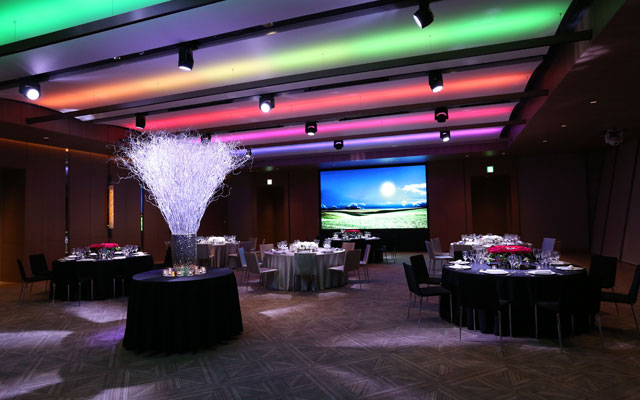Japan’s business events industry is adopting greater use of technology, driven by demand for more impactful functions and Covid-19-prevention methods.
“Adopting innovative technologies allows us to enhance our brand, while delivering a unique and memorable experience to attendees,” said Sam Maddicott, marketing and communications, British Chamber of Commerce in Japan, which holds 40 events across Tokyo annually.

“Every year, (technology capability) becomes a more important factor in determining which venue we choose.”
And providers are adapting swiftly to support the industry, which traditionally takes a low-technology approach.
In March, Tokyo-based Event Services recruited audiovisual expert Jun Tatsuki as managing director to help develop its technology-related offerings, shared company chairman Lucky Morimoto.
Tatsuki is advising on the set-up and use of LED hardware to minimise costs to the client, which remain prohibitively high in Japan compared to other countries in Asia.
Masato Masuda, director of sales and marketing at Grand Hyatt Tokyo, shared the hotel has completed a full renovation of all its event spaces to stay ahead of its competitors. The venues now feature custom LED screens, 2,400 pendant lights that can be programmed to reproduce original logos and designs on the ceiling, and high-spec projectors that enable projection mapping, thereby lowering the cost of visual effects.
Because of this, the hotel has seen a resultant uptick in requests for technology highlights at events, particularly from the IT industry.
Nobuaki Koshikawa, deputy general manager of human resources and general affairs at sustainable development company Cerespo, observed that technology was also being adopted to make events easier to run and more comfortable for guests. Recent offerings include cashless services and visual displays showing the availability of toilets.
Such measures to limit contact among attendees and staff are likely to become more prevalent alongside other Covid-19-prevention methods.
According to Masuda, no-touch thermometers, thermal scanners and equipment for online/video conferences will be the new normal to ensure a safe environment for guests.
However, Koshikawa said the use of technology would not gaurantee better or more well-attended events. “The important thing is…compatibility. Without being distracted by the new, we should objectively evaluate whether or not the technology can be utilised,” he commented.





















